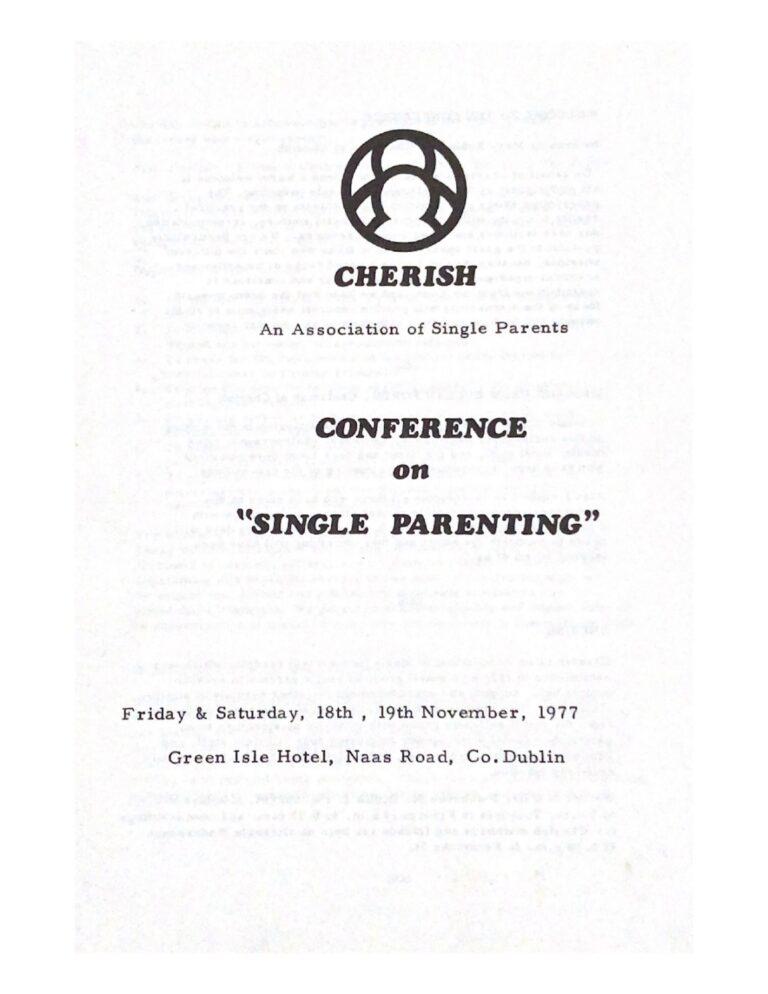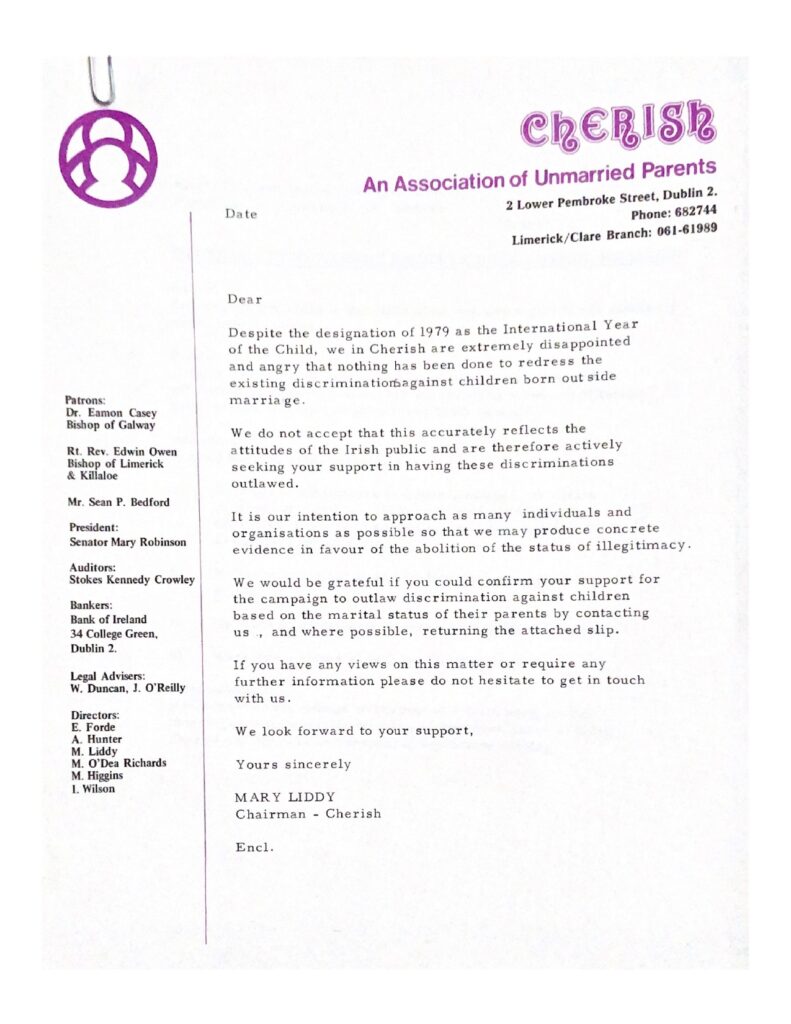Status Of Illegitimacy Was Abolished
Since its foundation, one of the key aims of Cherish was the abolition of the legal concept of illegitimacy. At the first Cherish conference in 1974 “The Unmarried Parent and Child in Irish Society”, Professor William Duncan summarised the main legal discriminations against children born outside wedlock:
- Regarded as illegitimate and the child of no one (filius nullius) such children had no rights in relation to the estate of the natural father
- Rights to the natural mother’s estate took second place to the rights of her legitimate children
- In order to obtain child support from the father, the mother had to take him to court within six months of the birth of the child
- Her evidence had to be corroborated
- If successful she would receive a maximum of £5 a week under a district court order
- The law reaffirmed an attitude of social disapproval and discrimination against single parents and their children



In 1977, an election year, Cherish lobbied politicians on the abolition of the concept of illegitimacy. The formal campaign began in January 1979 when Cherish brought out a discussion document ‘Abolishing Illegitimacy’. It was widely distributed to media and promoted a lively debate on the subject.
In 1980 Cherish raised the issue at a National Women’s Forum run by CSW, (now the National Women’s Council of Ireland). Two conference workshops passed resolutions calling for the abolition of illegitimacy.
In 1981 a revised issue of ‘Abolishing Illegitimacy’ was issued. It recommended that unmarried couples should have the option of making a ‘mutual declaration of parentage and joint custody’. It also recommended that children should have the same inheritance rights as those born within marriage, and rejected the automatic guardianship rights for all fathers.
In the same year the Status of Children Bill was introduced and Cherish was invited to speak on the subject at meetings around the country.
In 1987, after many years of campaigning, the Status of Children Act finally abolished the status of illegitimacy. The purpose of the Bill was to equalise the rights under the law of all children, whether born within or outside of marriage.
The Bill also introduced important new provisions regarding declarations of parentage, blood testing as an aid to establishing paternity, presumptions of parentage and other evidential matters. Finally, it amended the law dealing with the registration of births of children whose parents are not married to each other.
The Act was passed eight years after the first Discussion Document from Cherish, 13 years after the first conference in 1974. 15 years after the foundation of Cherish. The campaign for change was a long haul – but worth it.